Who Are Grandfamilies and Kinship Families?
We use the terms “grandfamilies” and “kinship families” interchangeably - and combined as “kinship/grandfamilies” - to refer to families in which grandparents, other adult family members, or close family friends are raising children whose parents are unable to do so.

We use the terms “grandfamilies” and “kinship families” interchangeably – and combined as “kinship/grandfamilies” – to refer to families in which grandparents, other adult family members, or close family friends are raising children whose parents are unable to do so. A longer explanation of terminology is available here.
While many of the caregivers in these families do not see themselves in the term “caregiver” or the names “kinship” or “grandfamilies,” they are doing the important job of raising children when parents cannot. The parents are not caring for their children for many reasons, including parental substance use, incarceration, military deployment, severe disability, deportation, teenage pregnancy, or death. We all likely know such a family, because these parental issues touch every socioeconomic level, race, ethnicity, and geographic area in the country. At least 2.4 million children are being raised in these families across the United States.
We all likely know such a family, because these parental issues touch every socioeconomic level, race, ethnicity, and geographic area in the country.
While the challenges some grandfamilies and kinship families face are similar to parent-headed families, there are two fundamental differences. Unlike parents, who have automatic legal rights and responsibilities for their children, kin/grandfamily caregivers do not. Moreover, they did not plan or expect to raise these children. They often step up to raise children at a moment’s notice – sometimes in the middle of the night – and usually due to a family crisis.
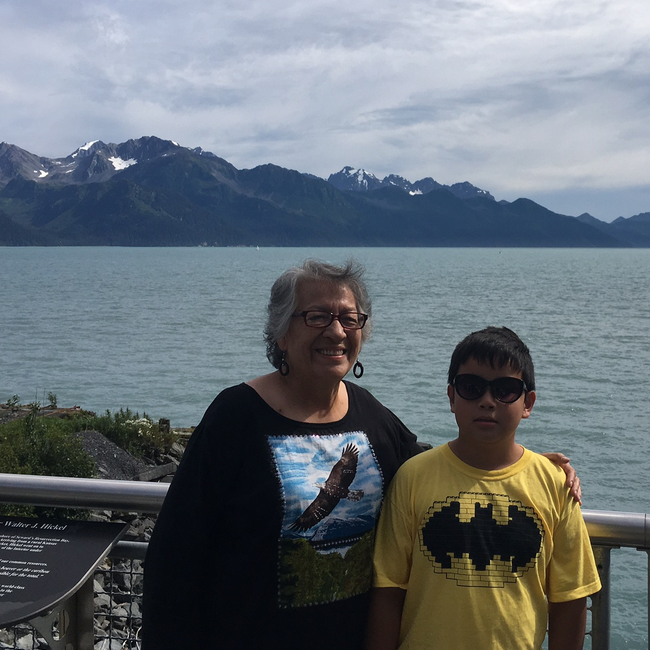
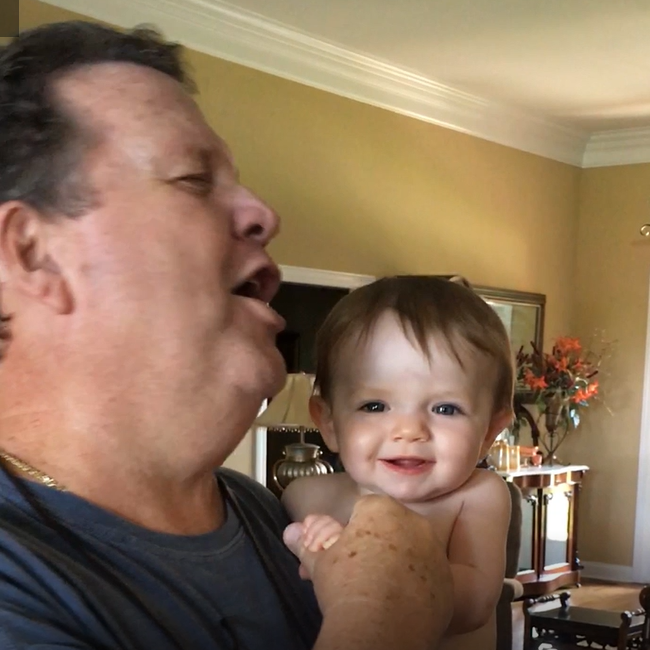
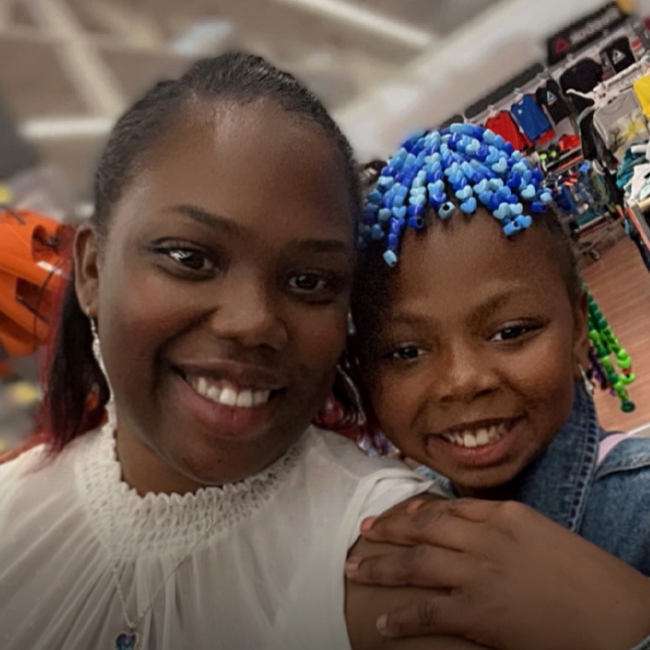
When the caregiver gets the child, mom and dad may not have signed over a power of attorney and the child welfare system may not be involved. So, grandma, uncle, or godmother is left to try to consent to the child’s health care, obtain authority over educational decisions, and include the child on their private health insurance or get them Medicaid. The list of challenges is typically long. The solution is often to try to obtain a legal relationship – but that takes time and money. Courts are involved. Notice must be provided to both parents, with weeks given to respond.
Even with a legal relationship, the practical issues can be overwhelming, including how to pay for food for a mouth one did not plan or expect to feed and where to create a bedroom when grandma may be retired and living in a studio apartment or in adult-only senior housing.
If the child was placed with a kin/grandfamily caregiver by the child welfare system, then that system may have legal custody. With child welfare involvement and authority, some of the practical challenges are easier, but there is still the issue of financial support. The vast majority of kin are not licensed by the child welfare agencies that have placed children with them. Consequently, most do not receive monthly foster care maintenance payments to meet the needs of the children. They may be referred to Temporary Assistance for Needy Families (TANF) child-only grants, but that program varies dramatically around the country, and in some states is as low as $99 per month for the first child, with only small increases for each additional child. That will barely pay for the shoes they need, let alone food, transportation, health care, clothes, diapers, etc. Imagine suddenly taking on another child to raise, without additional money. Most kinship/grandfamilies are asked to do just that.
Despite these challenges, decades of research prove that there are many benefits to placing children with kin, rather than with caregivers who do not know them, their culture, or their roots. That trove of research is why there has been a federal preference for placing children with relatives for almost thirty years, and why all states also have these preferences. Kin-first is an important concept that many states, tribes, and territories have embraced, but they need help getting there.
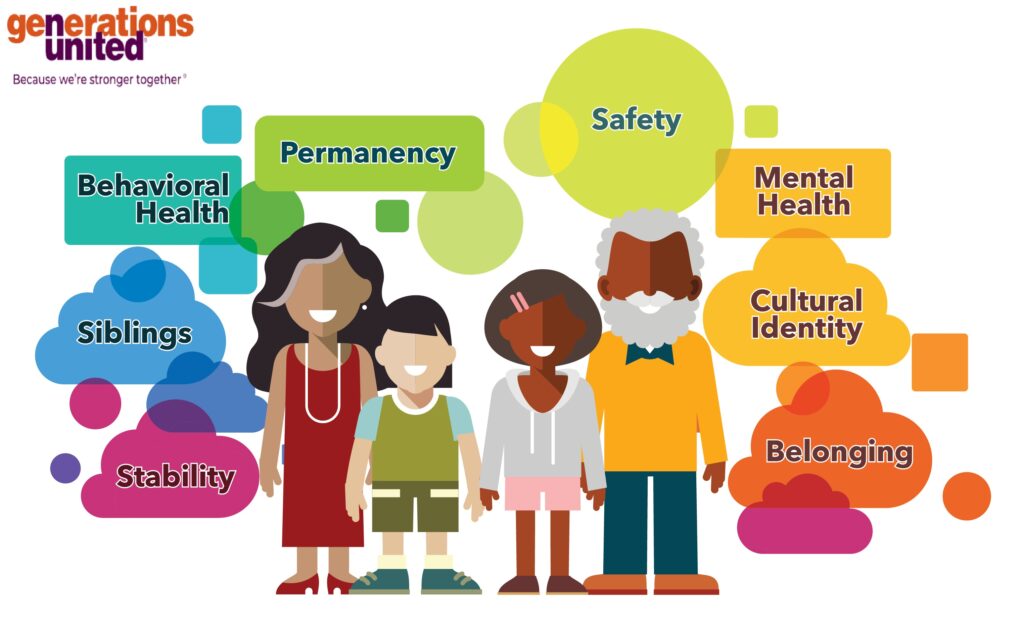
Learn more about kinship/grandfamilies’ strengths and challenges from our fact sheet.
The National Caucus and Center on Black Aging, a Network Partner, created a helpful infographic about kinship/grandfamilies.
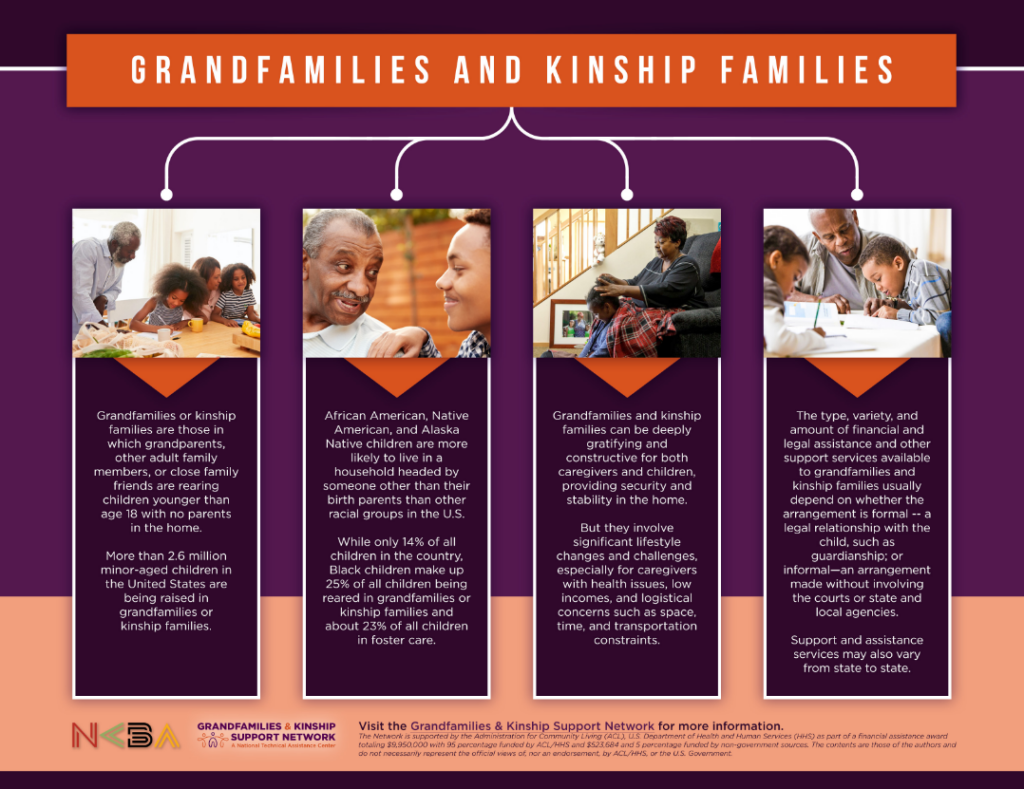
Deborah Willett, a member of Generations United’s Grandfamilies Advisory Group, Program Coordinator GRANDFamily Connections of Chester County, PA and GRANDFamily Provider Network of Chester County, created a video with her son Noah Willett to explain the terms grandfamilies/kinship families.